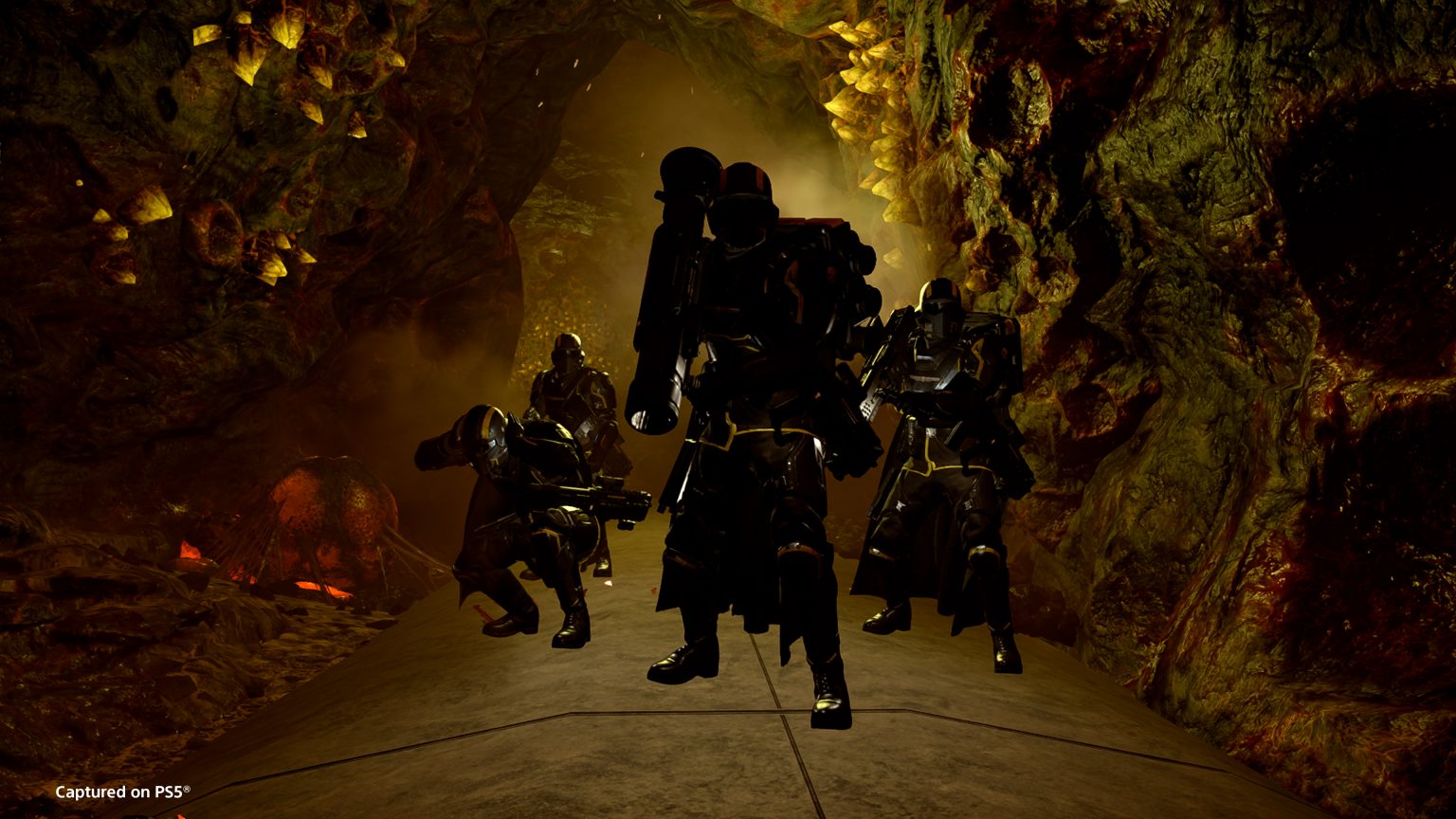“Diving into the Development Team” part 1
While our engine team is working on both the engine and another blog related to the tech we use, our Production Director, Alex Bolle, wanted to share some of the processes the development team undergoes at Arrowhead.
Question: Alex, can you introduce the production role on Helldivers 2. Can you tell people what that role means to the game that they love?
Answer: Absolutely. I see the producer as a chaos manager. We’re here to make sure that the creative direction of my fellow directors turns into something concrete, a plan basically.
What do we do with the features that they have in mind, with the improvements that we want for the game in a clear timeline with the people we need to make it happen and make sure that this is released on time, and in a state we know we need to be better at.
Question:
Timing and the cycles in the major updates are something that everybody gets excited about. How do you look at that internally?
Answer:
Preparing an arc is a recipe that we’re always trying to improve, sometimes it’s too salty, sometimes it needs more salt. We’re constantly trying to improve the live service experience.
It usually starts with a very strong fantasy: “what do we want the players to experience?”, then from that we create a list of initiatives for the game, from features, to major orders, the warbonds and so on.
In fact what’s interesting here is that for the longest time, our recipe was rather unbalanced, some would say way too spicy (but I’m from Corsica, I love spices). We were focused a lot on content. Listening to the players, we realized as a team that there is more than that. So we’re changing our approach. Some initiatives are all about cleaning our live features, introducing quality of life… We’re in the early stages of this, but so far when I look at future arcs, it’s promising and something I’m eager to let the community taste.
Question: So if we look at that, there’s some progress that you and the team have been making towards the hardening, tell me more about that.
Answer: So, hardening is our last step in the development process before release, and it’s been something that we’ve pledged to take as a main priority moving forward. We are currently addressing the issues and looking for more before we release more goodness for the players.
For the longest time our features would be considered ready and implemented in the release build at the very last minute. We’re working with the teams to stop that. We use the term “functional” as a minimum standard for when features should be in the game. For example, the Hive Lord, as functional, was a very rough version of what players experienced.
Question: How is the development team structured?
Answer: We have big groups of teams that we call Areas, and I love to talk about these as the whole Helldivers’ experience.
Picture this: The first Area you experience as a player is Meta. Meta is responsible for the entire Galaxy’s systems, they define the rules of the whole game, and you’ll find your beloved Game Masters in this Area!
It’s time to Dive into the enemies lines, here comes GameWorld: they are world builders, a bunch of talented people creating new biomes like the Hive Worlds, and the missions the Helldivers will accomplish in the name of democracy. They have some of the “hottest” stuff cooking in right now, but not before we get things in order!
It’s time for combat! And we call the next Area… combat (don’t ask a producer to be too creative)! These teams are behind the mightiest enemies encountered, but you all know that you need some good firepower to stomps bugs, so yes, warbonds are done here!
There are two areas remaining, very important ones: The first one is what we call the Tech platform, they are running our game engine, and the tools that the rest of the developers will use.
Last but not least, our own Ministry Of Truth: The marketing and communication Area, it’s pretty self explanatory, this is our voice. Actually, I wouldn’t write this if they weren’t here!
Please reply with your questions and thoughts!
Thank you for diving. We’ll see you next time!
